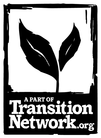
In addition to secularization, the idea that we must always progress technologically has allowed scientific thinking to pervade almost every human endeavor. Human industrial society operates as if it can control everything. Anything that can't be controlled yet is just a matter of more scientific research. That is the central myth of our belief in progress.
In 1637 Descartes wrote "I think therefore I am." In other writings, he clarifies that thinking is to be valued above the senses, feelings, beauty and nature. Since then, thinking became elevated above all else. Thinking, rationality and the scientific method have become the dominant forms in industrial society.
What if the dominant culture is wrong in its view of controlling nature? If life really is a mystery that can't be controlled?
I've stated that the universe is progressing from simple to complex and doing so faster and faster. There's no good way to discuss this that doesn't sound vaguely religious or spiritual. When I keep in mind that indigenous people's worldview includes the idea that matter has spirit, it's not too big a leap to say that the universe is a more positive enterprise than currently appears and that something bigger than ourselves is going on here.
We have abandoned God, and our replacement religion (technology) is faltering. The underpinnings of human industrial culture, the energy that drives it, the environment where we dump the waste products can't be taken for granted anymore.
I'm not suggesting we need more religion, nor am I saying let's dump science entirely. Both of these disciplines are useful and have their place. I am saying we need to remove science from the societal driver's seat. The scientific method has its place but decision making needs to be driven by a humanist approach steeped in the humanities. It is only with that focus that we can make decisions with long-term sustainability. Rational thinking is how we have created our current predicament. More rationality will not change the situation.
Albert Einstein in a 1941 radio broadcast said, "Perfection of means and confusion of goals seem, in my opinion, to characterize our age." In order to discover the hope I've been alluding to, we must let go of this dominant scientific culture that has developed over several centuries. We've become very good at getting things done, but the side of us that determines what goals we choose, where we are going, our humanist side — we've allowed it to atrophy. Reclaiming humanist ideals is a step toward a sense of hope.
—David Cutter



